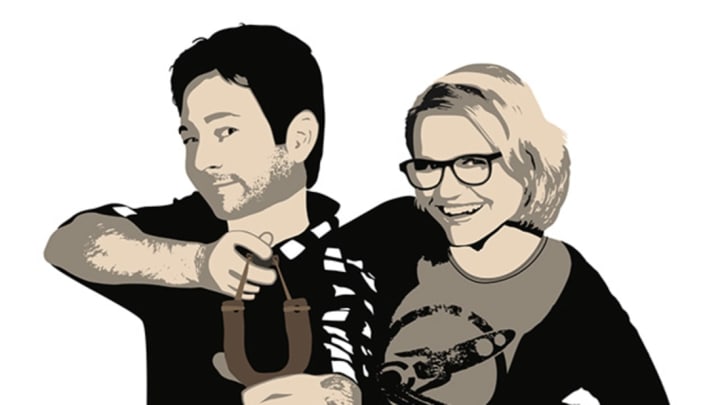I have long been a fan of Oh No, Ross and Carrie!, a podcast in which Ross Blocher and Carrie Poppy try out all sorts of experiences, then report back on what happened. It's a form of investigative journalism that's both easy to listen to and educational.
In previous episodes, the duo joined the LDS Church, purchased oxygen at an oxygen bar, lived on Soylent, and the list goes on.
In their most recent episode, Ross and Carrie begin an explanation of how they joined the Church of Scientology. This is just one episode of many on the topic, as apparently they spent months taking tests and attending events.
You may have seen Scientology centers offering free personality tests—personally, I've always been curious what's on the test! In an earlier episode, Ross and Carrie tried out Myers-Briggs, so the next logical step was to see what they could learn from the tests offered by their local (Los Angeles) Scientology center's test. Here's an embedded player for the podcast:
If that player doesn't work (it's a Flash plugin), here's an MP3, and the podcast is on iTunes and there's an RSS feed compatible with any podcast player.
SO WHAT'S ON THE TEST?
After signing up, the duo proceeded to take the Oxford Capacity Analysis test. Here's some of what they reported:
1. There are 200 questions on the OCA.
2. The test is not associated with the University of Oxford.
3. It uses a fill-in-the-bubble answer method (similar to Scantron).
4. For each question, the possible responses are: Plus, M, and Minus. While the duo didn't recall the specific meaning of "M," it was roughly "medium" or "maybe." (A neutral response.)
5. Sample questions (as reported by Ross): "Are you friendly in voice, attitude, and expression?"; "Does life seem rather vague and unreal to you?"; "Can you make a calculated risk without too much worry?" Ross noted that these seemed similar to other personality tests they tried—the questions are sometimes hard to answer if you think about them too hard, as the answers are situational.
6. After the initial personality test (which takes about an hour, give or take), there's a timed IQ test, then an "aptitude test."
7. The results of these tests are combined and analyzed, then a personal consultation ensues.
So what happened next? You'll have to listen to find out! (More episodes will likely go up in the coming weeks.)
